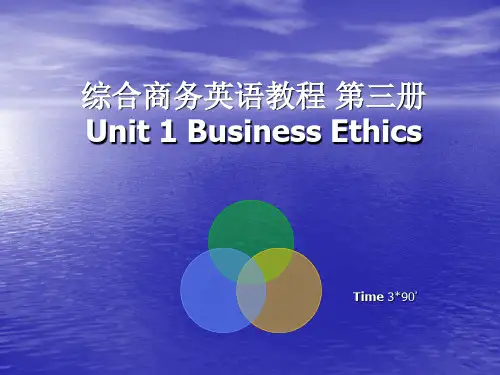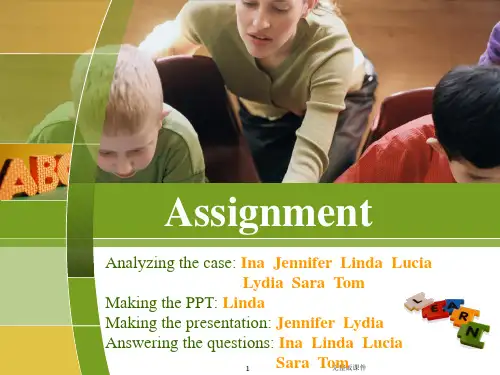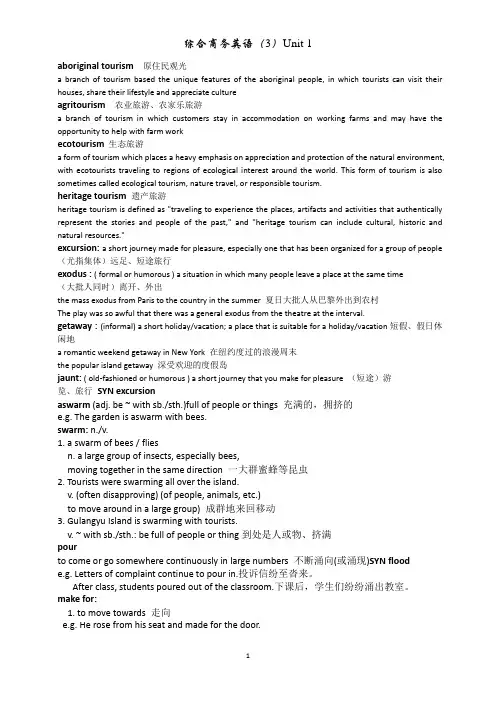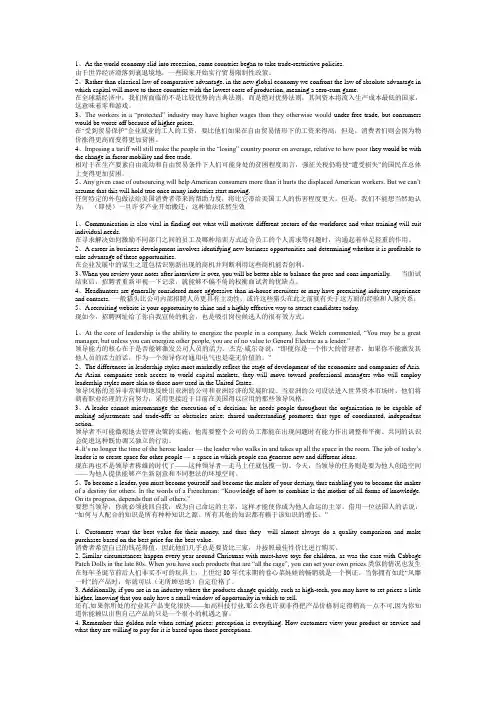商务英语综合教程 第三册第1课
- 格式:ppt
- 大小:3.57 MB
- 文档页数:40


![职场综合英语教程第三册 Unit 1 Business Trip[优质ppt]](https://uimg.taocdn.com/3ec306784b35eefdc8d3336a.webp)

![职场综合英语教程第三册 Unit 1 Business Trip[优质ppt]](https://uimg.taocdn.com/3ec306784b35eefdc8d3336a.webp)





aboriginal tourism原住民观光a branch of tourism based the unique features of the aboriginal people, in which tourists can visit their houses, share their lifestyle and appreciate cultureagritourism 农业旅游、农家乐旅游a branch of tourism in which customers stay in accommodation on working farms and may have the opportunity to help with farm workecotourism生态旅游a form of tourism which places a heavy emphasis on appreciation and protection of the natural environment, with ecotourists traveling to regions of ecological interest around the world. This form of tourism is also sometimes called ecological tourism, nature travel, or responsible tourism.heritage tourism遗产旅游heritage tourism is defined as "traveling to experience the places, artifacts and activities that authentically represent the stories and people of the past," and "heritage tourism can include cultural, historic and natural resources."excursion:a short journey made for pleasure, especially one that has been organized for a group of people (尤指集体)远足、短途旅行exodus : ( formal or humorous ) a situation in which many people leave a place at the same time(大批人同时)离开、外出the mass exodus from Paris to the country in the summer 夏日大批人从巴黎外出到农村The play was so awful that there was a general exodus from the theatre at the interval.getaway : (informal) a short holiday/vacation; a place that is suitable for a holiday/vacation短假、假日休闲地a romantic weekend getaway in New York 在纽约度过的浪漫周末the popular island getaway 深受欢迎的度假岛jaunt: ( old-fashioned or humorous ) a short journey that you make for pleasure (短途)游览、旅行SYN excursionaswarm (adj. be ~ with sb./sth.)full of people or things 充满的,拥挤的e.g. The garden is aswarm with bees.swarm: n./v.1. a swarm of bees / fliesn. a large group of insects, especially bees,moving together in the same direction 一大群蜜蜂等昆虫2. Tourists were swarming all over the island.v. (often disapproving) (of people, animals, etc.)to move around in a large group) 成群地来回移动3. Gulangyu Island is swarming with tourists.v. ~ with sb./sth.: be full of people or thing到处是人或物、挤满pourto come or go somewhere continuously in large numbers 不断涌向(或涌现)SYN floode.g. Letters of complaint continue to pour in.投诉信纷至沓来。

1、As the world economy slid into recession, some countries began to take trade-restrictive policies.由于世界经济滑落到衰退境地,一些国家开始实行贸易限制性政策。
2、Rather than classical law of comparative advantage, in the new global economy we confront the law of absolute advantage in which capital will move to those countries with the lowest costs of production, meaning a zero-sum game.在全球新经济中,我们所面临的不是比较优势的古典法则,而是绝对优势法则,其间资本将流入生产成本最低的国家,这意味着零和游戏。
3、The workers in a “protected” industry may have higher wages than they otherwise would under free trade, but consumers would be worse off because of higher prices.在“受到贸易保护”企业就业的工人的工资,要比他们如果在自由贸易情形下的工资来得高;但是,消费者们则会因为物价涨得更高而变得更加贫困。
4、Imposing a tariff will still make the people in the “losing” country poorer on average, relative to how poor t hey would be with the change in factor mobility and free trade.相对于在生产要素自由流动和自由贸易条件下人们可能身处的贫困程度而言,强征关税仍将使“遭受损失”的国民在总体上变得更加贫困。
2015/9/15Discussion: First days at collegeUnit 1 Fresh Start• Do you remember your first days at college? Did anything special happen then? • What are the major differences between college and high school lives? • What do you expect to obtain in college?JOANNEStudy focus• Topics and background: • What is college for? Or What is the essence of a college? • What are the differences of Chinese universities and universities overseas? • Language: • Vivid descriptions of mentalities and actions. • Humor of the language.Text: A general look• What is the genre of the text? Narration - An narrative writing describes a sequence of real and unreal events. - The author recounts her embarrassing moments during her first days of college. She gives us detailed accounts of the process of 3 incidents, the after-effect and the significant insight into herself.Global reading - organization• Chronologically described: – Arriving at campus – Three embarrassing events – I have realized… 1. going into a wrong classroom; 2. falling down in the cafeteria; 3. witnessing the same embarrassing fall of football player;Details - 1. arriving at college• How did she feel? • A bit first-gradish, distressful, uncomfortable, nervous, cautious, excited… • Why did she have the impression that “everyone on campus was watching me”? • She was over-sensitive, uneasy with her identity as a newcomer. She thought new students would attract others’ attention.12015/9/15Paraphrase• Adding to my distress was the distinct impression that everyone on campus was watching me. I could clearly feel that everyone on campus was watching me, and this made me even more upset.Language work: distinct• distinct • clearly seen, heard, felt, understood, etc.; noticeable, different – E.g., The children have distinct memories of their grandfather in his last days. – E.g., Now that the boss was no longer present, there was a distinct change in her attitude. • be distinct from/indistinct & distinctive• distinctive • a thing or quality that is so special because it is clearly different from others of its kind. – E.g., Beer has a very distinctive smell; it’s quite distinct from the smell of wine. • distinctly: adv. • distinction: n. -- 本书特点之一就是具有清楚明了的图解。